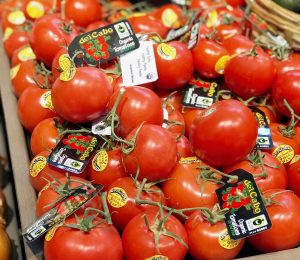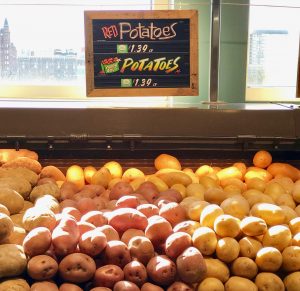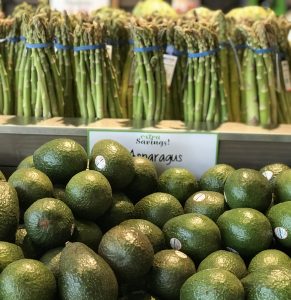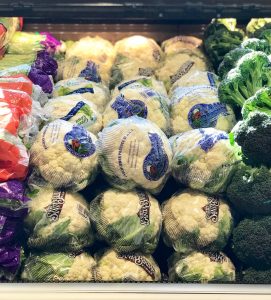As organic produce, dairy, and meat becomes more common in local grocery stores, it seems logical that there must be some benefit if the demand for organic goods keeps increasing. So what’s the big deal? Is it really worth the extra couple dollars to buy organic? The short answer is yes! But why?
Here are the Quick Facts:
- Organic dairy and meat contains about 50 percent more omega-3 fatty acids.
- The concentrations of a range of antioxidants such as polyphenolics were found to be substantially higher in organic crops and crop-based foods when compared to conventional samples, organic samples are less likely to contain detectable pesticides and have lower concentration of pesticide residues approximately ⅔ of the time.
- Organic produce tends to contain higher levels of vitamin c.
- Organic products contain lower levels of nitrates.
Omega-3 Fatty Acids: Lower risk of heart disease. Helps with arthritis, depression, baby development, asthma, ADHD, alzheimer’s, dementia.
Antioxidants: Protect the body from damage caused by harmful molecules.
Polyphenolics: Help with type 2 diabetes, inflammation, heart disease, obesity.
Pesticides: A substance used for destroying insects or other organisms harmful to cultivated plants or to animals.
Vitamin C: Reduces stress, protects against colds, stroke, skin aging, antioxidants
Nitrates: Can cause pancreatic cancer, linked to alzheimers and diabetes, can be harmful to babies.
Still wondering if you should hop on the organic bandwagon?
If you aren’t already buying organic, I am going to help you ease your way into it. Luckily, there are two magic lists that exist that will shortly become your best friends in regards to produce. They are called the “Dirty Dozen” and the “Clean Fifteen”. The Dirty Dozen is a list of produce that you should always buy organic. This is because they are more susceptible to carrying pesticides. The Clean Fifteen is a list of produce that it’s okay to purchase non-organic because they are the least likely to carry residue from pesticides. Of course, it’s always best to buy organic as often as possible, but if it’s not in the budget this week, now you’ll know where to make some cuts and feel comfortable about it.
Dirty Dozen

Strawberries
Spinach
Nectarines
Apples
Peaches
Celery
Grapes
 Pears
Pears
Cherries
Tomatoes
Sweet bell peppers
Potatoes
Clean Fifteen

Sweet corn
Avocados
Pineapples
Cabbage
Onions
Frozen sweet peas
Papayas
Asparagus
 Mangoes
Mangoes
Eggplant
Honeydew
Kiwifruit
Cantaloupe
Cauliflower
Grapefruit
Craving More Information?
My Fresh Basket partners with the Metabolic Institute each month to provide a free “Walk the Store Nutrition Tour”. Check our event page or Facebook for details about the date, time, and topic of our next one! Or, email events@myfreshspokane.com if you think we should host a class with more in-depth information on eating organic.
Sources:
Is Organic More Nutritious? New Study Adds To The Evidence
Organic Fruits and Vegetables: Potential Health Benefits and Risks
